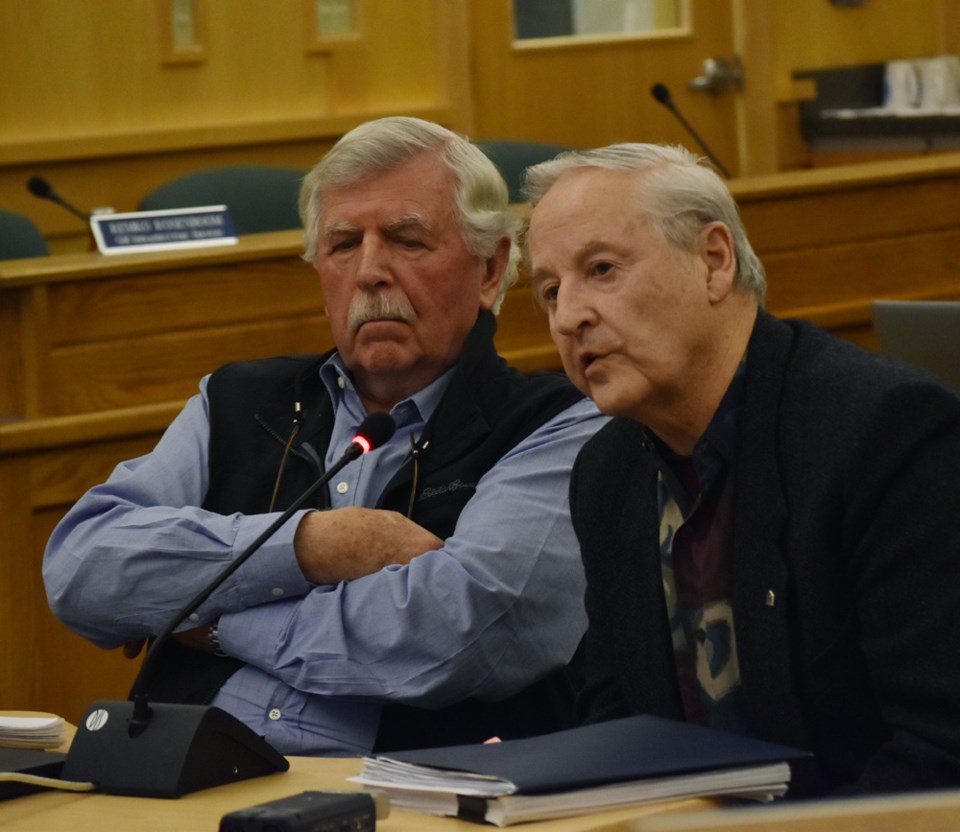Two delegations gave Sunshine Coast Regional District (SCRD) directors a taste of where constituents stand on water meters as they ready themselves for a vote to move ahead with a $7-million loan to install them in the Sechelt area.
First up at the Jan. 30 infrastructure services committee meeting was Dave Hawkins, an engineer and former metered water system operator who said he values “measuring what we use,” but isn’t a meter advocate.
If water meter installations were completed on the Sunshine Coast, said Hawkins, they should allow people to make “intelligent choices” by giving them access to data.
Meters should also be convenient for people, he said. For starters, they could eliminate the need for complicated drought management plans.
“I can’t tell you how frustrating it is to be told in the regulations when, where, how, what kind of device for what purpose I should be using water without ever telling me how much water I can actually use. Let’s flip that around,” said Hawkins.
He said the SCRD should pitch the public that paying a metered rate is fairer and more transparent than the current rate structure, and would lead to cost savings since demand would be curtailed through leak detection and conservation.
And rather than making implementation mandatory immediately, people could opt in. Most would be won over when the savings become obvious, he said. “Start applying it and then learn what works and what doesn’t.”
Sechelt residents Geoff Bedford and Karl Clackmeyer, also an engineer, spoke in favour of leak detection, but opposed what they described as “policing water consumption” by installing meters for individual households.
“There are huge amounts of water which we can access,” said Bedford. “We don’t believe, properly managed, that we have to conserve to the degree that everybody is talking. The question that comes to my mind is, what if we don’t need water meters?”
For starters, the $7-million loan and additional interest don’t make a strong business case, he said.
Clackmeyer said a leak detection program should be implemented on main water distribution pipe infrastructure instead, and the SCRD should focus on accelerating the implementation of the Church Road wells. The Dusty Road well site should be revisited, too, since it was disqualified “based on paper-thin arguments” of being a non-contained aquifer.
The SCRD, Clackmeyer said, should also find out if the proposed Grey Creek well could be pumped directly into the distribution system rather than going through the Chapman Creek Water Treatment Plant. The “unpractical and very, very expensive” raw water reservoir project should be abandoned, he said.
After their presentation, SCRD staff said consultants believe “it is highly unlikely” there is a confined aquifer below the one that was tested at Dusty Road, and that industrial activity puts the well at risk.
“We have an abundance of aquifers on the Sunshine Coast… We will be investigating other groundwater sources,” said Elphinstone director Donna McMahon.
As for guaranteeing reduced metered rates compared to current fixed rates, Sechelt director Darnelda Siegers cautioned that they couldn’t make that promise since the SCRD is expected to increase rates to “catch up on what we’re spending.”
Roberts Creek director Andreas Tize, meanwhile, suggested water meters make a stronger business case than wells, since they could save more water than what the wells could produce, and cost less than then the $8 million estimated for Church Road wells, which he also supports.
Directors are expected to vote at Round 2 budget deliberations on whether to move ahead with an Alternative Approval Process (AAP) to secure a $7-million loan for water-meter installations in Sechelt and the Sechelt Indian Government District. They will also be deciding on an AAP for the Church Road well site. Deliberations are set for Feb. 10 and 11.
If an AAP does move ahead, staff estimate it would take at least two years to install the meters.



